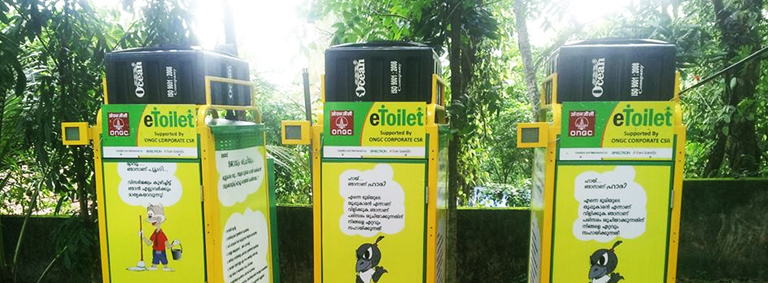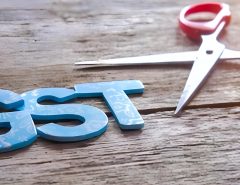The task of the Swachh Bharat Mission (SBM) movement needs to ensure that the agenda aimed at maintaining the Open Defecation Free (ODF) status are achieved and maintained focusing on behaviour change. For this, reinforcement, adequate investment and most importantly, planning and providing for treatment of waste is kept at the forefront of all our developmental initiatives. Only then, can the vision of a truly clean India ‘Swachh Bharat’ will come true.
Even prior to declaring India as ODF, on 2nd October 2019 as a tribute to commemorate 150th birth anniversary of the Father of the Nation, the current SBM-leadership has already begun addressing the NextGen issues post an ODF India. These include promoting continued usage of toilets through intensive Information, Education and Communication (IEC) campaigns driven by the local practitioners; capacity building for sustainability interventions and investments; ODF+ interventions to safely manage solid and liquid wastes in rural areas; ensuring water for sanitation in rural areas; and re-energizing the field force and local institutions for collective outcomes.
India Sanitation Coalition has encouraged corporates to include sanitation in their CSR spend. We need more financing from multiple streams, including direct financing, credit and micro financing as also impact-based financing.
India Sanitation Coalition believes in BUMT – Build, Use, Maintain, Treat. We have identified newer and innovative areas of collaboration where private sector can play an effective role in enabling access to and use of sanitation services.
It is critical that the aspect of Treatment is taken as a vital starting point during the planning for any type of sanitation intervention. The mantra of treatment, treatment and treatment is key to sustainable sanitation otherwise, we would just create toilets to aggregate the waste and pump it back into the fields. One of the statistics compared highlights that one truck dumping sewage waste in open is equivalent to 5000 people defecating in open.
Continuous behaviour change is critical for the ODF status to be maintained and indeed for the population at large to move from ODF to ODF ++ status. ‘Each one every time’ is the mantra in this regard. We also need to be mindful of inclusivity in terms of gender and special needs while planning for sanitation interventions.
The task of nation-building through the repair and maintenance of toilets needs to be looked with an additional lens of good and enduring quality. The investment made in the construction of toilets can only be fruitful, if it is maintained well and repaired timely.
Water, Sanitation and Hygiene (WASH) Financing:
The sector need large-scale financing under WASH category over a range of interventions like water connections in households; households not covered under SBM interventions or are left outside the baseline surveys; households that have dysfunctional toilets that require frequent repairs and enterprises that work in the sanitation supply chain or solid and liquid waste management.
The current lending in the sanitation sector is less than Rs 700 crore whereas the market size is around Rs 80,000 crore.
The India Sanitation Coalition is working closely with designated High-Level Committee on Corporate Social Responsibility (CSR) under the Ministry of Corporate Affairs, GoIfor amending the existing guidelines to allow the CSR funds to be mobilized for innovative funding mechanisms that can spur India’s sanitation movement.
In the long-term, we think that the CSR Act may potentially allow CSR funds to be utilized by companies instituting the monitoring mechanism for the comprehensive assessment of WASH compliance. It can be used by its workers and neighbouring communities and grant monetary rewards to individual worker households within the demographic for 100 % WASH compliance in the form of a “Swachhta Bonus”.
India Sanitation Coalition is also engaging with financial institutions including banks to encourage them to enhance WASH financing permitted under Priority Sector Lending.
Key Highlights of Swachh Bharat Mission (SBM):
SBM – Rural: Since inception of SBM, over 926 lakh individual household have toilets; nearly 2.50 lakh gram panchayats declared open defecation free out of which 2.25 lakh gram panchayats have also been verified as ODF. 5.5 lakh village declared ODF of which nearly 5 lakh villages been verified as ODF.
As per the National Annual Rural Sanitation Survey (NARSS) 2018-19:More than 93% of rural households in the country had access to toilets; 96% of the households had toilets; 91% of less than 3000 ODF verified villages surveyed confirmed as ODF.
SBM – Urban: Nearly 55 lakh individual toilets built and 3500+ cities have already become open defecation free.
SBM ODF+ and ODF++ protocols are focussed in addressing the complete sanitation value chain including safe containment, treatment and disposal of faecal sludge and septage.
22 Faecal Sludge Treatment Plants (FSTPs) across 12 states have already been commissioned or made operational by private operators including those in the PPP model. 10 FSTPs across 6 states are under construction. Besides, there are over 400 FSTPs that are under various stages of procurement and commissioning in multiple states.
(Excerpts from the welcome speech of Ms. Naina Lal Kidwai during the 3rd ISC-FICCI Sanitation Awards and India Sanitation Conclave, New Delhi)





